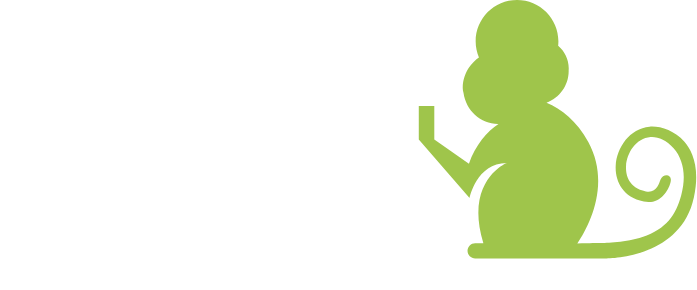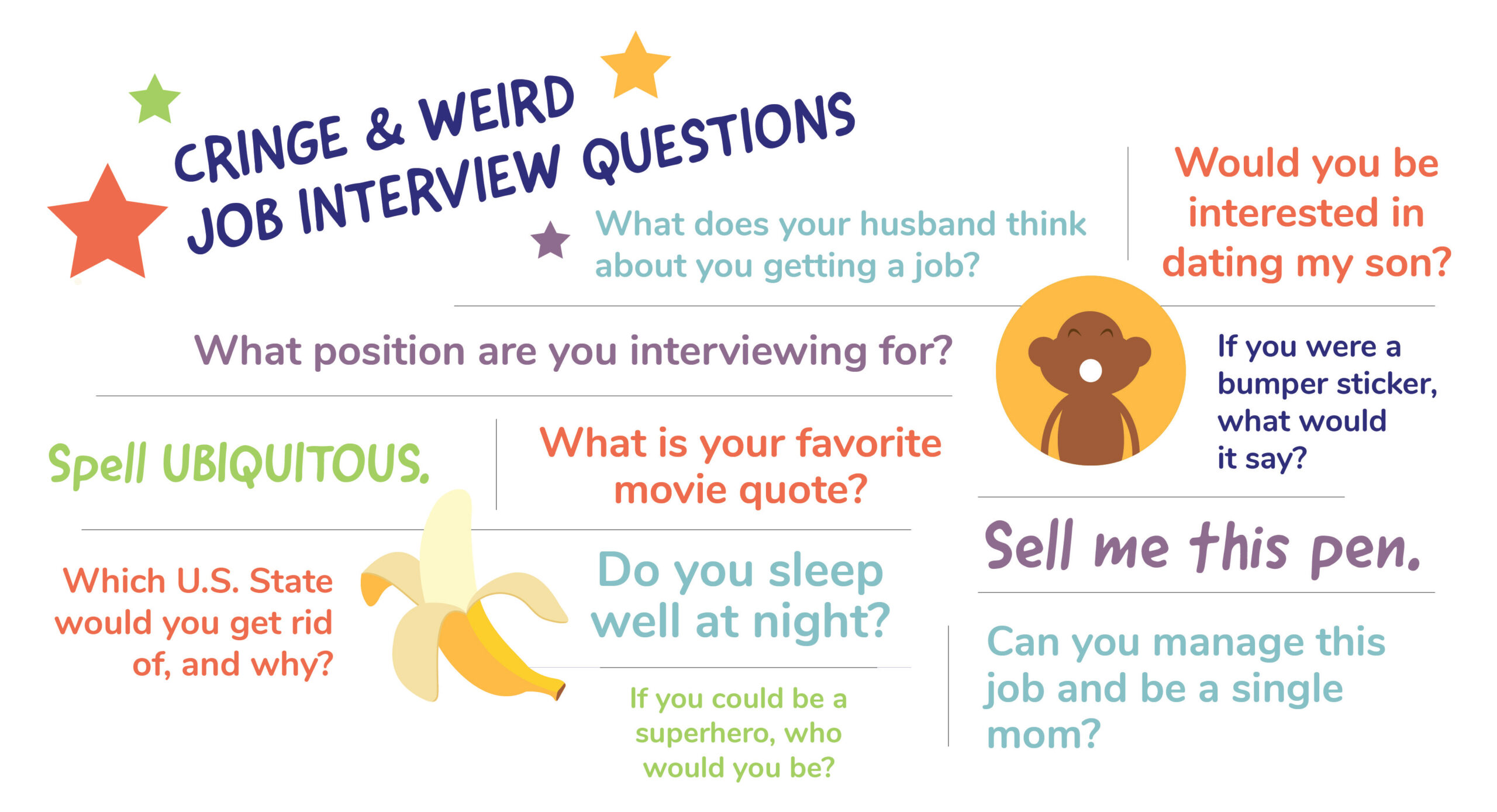Finally. The email you’ve been waiting weeks for has finally arrived—a company wants to interview you.
As the excitement sets in, you may also feel a little bit nervous, not knowing what questions they may ask. It’s natural to feel this way—job interviews can be stressful and uncertain, especially if you’re a teenager just starting out in the workforce. But don’t worry, with a little bit of preparation and practice, you’ll be able to answer the interviewer’s questions with confidence and impress them with your professionalism and eagerness to succeed.
Let’s take a look at some of the most common interview questions posed to teens during entry-level job interviews and explore some tips and strategies for crafting effective answers.
Common Interview Questions
First and foremost, almost every interview begins with the generic request to “tell me about yourself.” Seems like a safe place to start, right? Most interviewers will also ask questions about your skill set to learn what you can offer to their team. They will also want to know how you would handle difficult situations, so they may post hypothetical scenario-based questions.
Anticipating the interview questions will enable you to thoughtfully plan your answers, practice them, and be prepared to wow your potential employer! Check out this list (follow by tips on effective ways to answer each question) to enable yourself to enter the interview with confidence.
- Tell me about yourself.
- How did you hear about this job?
- Why do you want to work here?
- What do you know about our company?
- What are your biggest strengths and weaknesses?
- What do you bring to the table?
- Can you describe a time when you demonstrated teamwork?
- What are your hobbies and interests?
- How do you handle conflict with a coworker or customer?
- Can you describe a situation where you had a problem to solve and how you approached it?
- What are your long-term career goals?
- How do you prioritize tasks and manage your time?
- Why should we hire you over other candidates?
No job interview will follow this list word for word, but it is a helpful outline of questions that will help prepare you for anything that comes your way.
As you probably noticed, some of these questions have pretty straightforward answers, such as “how did you hear about this job?” On the other hand, some are more subjective. For example, “Why do you want to work here?” might require a bit more thought. Before you blurt out the real answer which is most likely “because I want to make money,” read the following tips for answering a few of the more obscure questions.
How to Effectively Answer Job Interview Questions
“Tell me about yourself.”
This question might seem like a breeze, but remember to keep it short and sweet while focusing on details that an employer would care about. They probably don’t care how many wins you have in Fortnite, but they do care that you are part of the National Honor Society. Tell them where you’re from, what school you attend, what previous jobs you’ve had, and what your interests are. Highlight your most relevant skills, experience, and what sets you apart from the other candidates. Don’t be afraid to show your personality!
“Why do you want to work here?”
Look up the company’s mission and values, and how they align with your own. You can mention positive reviews you’ve heard from your friends who have worked there before. Mention certain skills you want to learn and develop while working there, and highlight how you can contribute to the company’s success.
“What do you know about our company?”
Do your research before the interview. Show that you’re interested and invested by talking about what you learned about the company, its history, and recent news. Bonus points if you can mention something unique that you admire about the company culture!
“What are your biggest strengths and weaknesses?”
This question is a classic example of a behavioral interview question, which is designed to assess your past behavior and how you might handle similar situations in the future. When answering this question, focus on your strengths, but also be honest about your weaknesses. When discussing your weaknesses, be sure to emphasize how you are working to improve them. For example, you could say something like, “My biggest strength is my attention to detail, which allows me to do high-quality work consistently. My weakness is that I can sometimes be too detail-oriented, which can lead to me taking longer to complete tasks. To address this, I have been working on prioritizing and delegating tasks more effectively.”
“What do you bring to the table?”
Let’s be clear. They are not referring to a dinner table, and you aren’t bringing the mashed potatoes. Questions like this are intended to draw out your specific skills and experiences. Express how your unique skill set contributed to the work environment at your previous job. Or, if this is your first job, feel free to lean on experiences from school, youth groups, and at home that highlight your talents. For example, “I’m always the first one to notice that the dishes need to be done at home. I will bring a proactive, can-do attitude to your company so work gets done without being asked.”
“Can you describe a time when you demonstrated teamwork?”
Think of a situation where you had to work with others to achieve a common goal. This could be from a previous job, in a group project at school, involvement in a sports team, playing in an orchestra, etc. Talk about your role, how you communicated and collaborated with your team, and what you learned from the experience.
“What are your hobbies and interests?”
Don’t be afraid to share your passions and interests, as long as they’re appropriate for the workplace. Tell them what makes you unique by expressing the things that make you, you! Doing so can help the interviewer get to know you on a personal level, and give them a glimpse of what you’re like outside of work.
“How do you handle conflict with a coworker or customer?”
Explain how you handle conflict in a professional and respectful manner, and how you try to find a solution that works for everyone. Mention any experience you have in resolving conflicts and what you learned from those situations. You can lean on experiences with siblings or friends if needed.

“Can you describe a situation where you had to solve a problem and how you approached it?”
These types of questions are important to come prepared for, as it can be difficult to think of specific examples on the spot. Share a situation where you had to think critically and creatively to find a solution. You’ve no doubt been handed a school project that involved some level of problem-solving. Explain the steps you took, how you gathered information and made decisions, and what you learned from the experience.
“What are your long-term career goals?”
This question is designed to assess your long-term career goals and aspirations. Even if you are applying for an entry-level job at a movie theater or ice cream shop, it’s important to have a clear vision for your future and to be able to articulate how this position can help you achieve your long-term goals. If your dream job is to be the CTO of a startup company someday, you could say something like, “My ultimate career goal is to be the Chief Technology Officer of a successful startup company. While I know that my current position may not directly relate to technology, I believe that every experience, no matter how small, provides an opportunity to learn and grow.”
“How do you prioritize tasks and manage your time?”
Share your strategies for staying organized and focused, and how you prioritize tasks to meet deadlines and achieve goals. School work is always a great example of this. Tell the interview about a time when you had a pile of homework, a soccer game, and a piano recital all at the same time. Mention how you handled multiple tasks simultaneously.
“Why should we hire you over other candidates?”
Highlight your unique skills, experiences, and qualities that make you the best candidate for the job. Be confident! Don’t be afraid to show your enthusiasm for the role.
Fitting into the Schedule
Toward the end of the interview, after the interviewer has gotten to know you better, they will probably wrap things up with a few questions about your availability and schedule. These questions may include:
What hours can you work?
Do you have a reliable way to get to work?
Will you show up on time each day to work?
Be ready to share what hours you can work. Employers know that you have school, sports, music lessons, and other extracurricular activities, and are usually willing to schedule around those things. But they need to have a clear picture of what hours you can work. This will help you avoid scheduling conflicts in the future, and help them determine if they can reasonably accommodate your schedule.
Alternatively, if your schedule feels too busy year-round and you’re just looking for a job around the holidays, let them know you’re interested in a seasonal role.
Employers also want to know if you have a reliable way to get to work for each shift, whether that be your own car or your parental chauffeur. They want to ensure that they can count on you to show up on time and ready to work for each shift.
Be realistic about your situation. Tell them what they can expect from you in each of these areas so that you can both enter this relationship with eyes wide open.

Conclusion
Preparing for a job interview can be a little nerve-wracking, but with the right preparation, you can enter the room feeling confident and ready to showcase your skills and qualifications to any potential employer.
Bonus Tip: Practice your responses out loud by doing a mock interview with a parent or a friend. Things may seem all put together in your head, but when it comes time to communicate your responses out loud, it may be difficult to sort out your ideas into a thoughtful answer. This way, you can be sure that you are ready for anything that the interviewer throws your way.
And don’t forget, Jipe is here to help you find great part-time and full-time jobs that fit your style and match you with leading employers. So don’t wait, start swiping through job openings on the Jipe app today and take the first step toward landing your next job!










